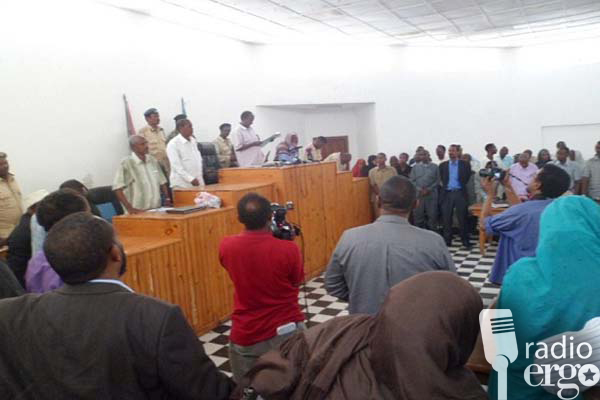Women and lawyers in Somaliland are up in arms about a new law that they say diminishes the gravity of rape and also legalises the forced marriage of underage girls.
The Rape, Fornication and Other Related Offences Bill was passed by the Somaliland House of Representatives on 25 August 2020.
Hibaq Ibrahim Gamute, a law professor at Hargeisa University and a practising lawyer, told Radio Ergo that the law would make it harder to prosecute rape cases in court.
She said the definition of rape was now unclear, following a dilution of the bill based on the insertion of views of religious leaders, which focuses on the crimes of fornication and adultery.
“Religious leaders argued that rape should be placed within the context of fornication and adultery, so this law reduces rape to an act of fornication,” Hibaq stated.
The law also gives parents the power to marry off girls (minors) and mentally ill women if they feel it is in their best interest. The previous bill had prohibited forced marriages.
The punishment for rape has become part of Islamic Sharia law punishment for fornication and adultery, and could be as little as five to 10 years in prison. The death penalty applies for gang rape and cases where the victim contracts HIV. However, the victims’ families may accept compensation or 15 years imprisonment. The previous law had applied a jail term of 30 years for rape.
“This gives a lot of leeway to the judge to decide and that is counter to the interest of the victims,” Hiba commented.
Another contentious issue is the introduction of eye-witnesses as admissible evidence in rape cases. These witnesses would be men, as stated under Sharia law.
Nafisa Yusuf Mohamed, the executive director of women’s organisation Nagaad, said they were not consulted in amending the law despite having been involved the original drafting process.
“We have been involved in drafting the rape law since 2013 and we engaged many lawyers in the work. The two houses approved the first law and the president signed it. It was complete and robust in defending the rights of women and children,” she said, referring to the bill that was passed in 2018, which has now been amended.
“We as women don’t have any confidence in the new law and we stand by the one that was first approved by the president,” Nafisa added.
Nagaad has vowed to raise the matter with the president and parliament, informing them that the new law does not sufficiently protect the rights of women and children.
Mubarak Abdi, a lawyer who represents rape victims, agreed that the previous bill was clear cut about the crime of rape and the punishment, whereas the new law allows too much to rest on the judge’s decision.
“When you’re prosecuting a case, you know the punishment that befits the crime, but now only the judge knows how it will go. This leads to loss of confidence in the justice system,” he said.
Source: Ergo




























